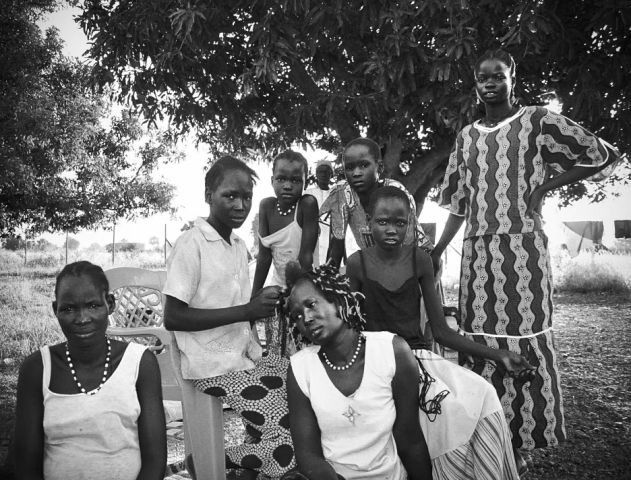It is a cruel irony for the people of Southern Sudan that the whole world is now fully focused on the potential fallout of this weekend’s referendum on secession from the North, while the ongoing emergencies facing the region since the signing of the Comprehensive Peace Agreement (CPA) six years ago were all but ignored.
In 2005, when the North and the South signed the CPA - ending Africa’s longest running civil war that claimed two millions lives and displaced four million people – the so-called ‘international community’ shifted focus. They concentrated on ensuring government service-delivery contributed to making the peace agreement ‘stick’ and that there were ‘peace-dividends’ for the people of Southern Sudan. The aim of this was to bring stability to the southern region ahead of the much anticipated vote looming this Sunday 9th January
However, this focus had an important consequence: the ongoing crises facing Southern Sudan – all needing emergency responses - where often overlooked and downplayed. Throughout Southern Sudan, mortality rates remain high - one out of seven mothers die due to pregnancy-related complications - malnutrition is chronic, and regular outbreaks of preventable diseases remain a persistent threat to the lives of the population. It is estimated that 75% of the population still do not have access to even basic healthcare services. The bombs may have stopped falling in 2005, but the medical emergencies did not subside.
Southern Sudan is currently facing its biggest kala azar outbreak in eight years. Kala azar, or visceral leishmaniasis, is a neglected tropical disease contracted through the bite of a parasite-carrying sandfly, and is endemic in Southern Sudan. Symptoms include an enlarged spleen, fever, weakness, and wasting. If untreated, kala azar is fatal in almost 100 percent of cases within one to four months, but timely treatment can mean a success rate of up to 95 percent. By the end of November 2010, MSF had treated 2,355 people for the disease in Upper Nile, Unity and Jonglei states - eight times more than for the same period in the previous year.
This outbreak was further exacerbated by the reality that people’s immune systems were already weakened by increased levels of malnutrition this year. In the first ten months of 2010, MSF admitted 13,800 patients with severe malnutrition to its clinics, a 20% increase in numbers treated compared to the same time in 2009 and a 50% increase compared to the whole of 2008.
At the same time, MSF conducted a mass measles vaccination campaign between the 30 December and 1st January to contain an outbreak that had occurred amongst a group of returnees in Warrap state. The outbreak once again highlighted the vulnerability of the population and the weakness of the health system.
However, these are just some of the numerous emergencies that have struck Southern Sudan in recent years. Insecurity has persisted in many parts of the South, peaking in 2009 when MSF saw an increase in violent clashes from the Lords Resistance Army (LRA) activity in the equatorias and the so called ‘tribal clashes’ in Upper Nile and Jonglei states. During that period, women and children were targeted and 250,000 people were displaced. In 2010, a further 215,000 people were displaced and 900 killed as a result of so called tribal clashes, the LRA and the emergence of new militias. Instability in the border areas to the north constituted a further destabilizing factor resulting in displacement and further medical emergencies. Meanwhile international donors, many of whom had stakes in ensuring the success of the CPA, channeled the majority of funds into longer-term development initiatives and underfunded the immediate emergency needs of the population.
As the world focuses on the politics of the approaching referendum, it must not lose sight of the people who are being plunged from one emergency to the next. Southern Sudan remains mired in a humanitarian crisis, and as a viable health system will still take years to fully build, peoples’ immediate needs for food, shelter and healthcare must be better met. This will require a sustained and robust emergency response, regardless of the outcomes of the referendum.
Jonathan WHITTALL is a Humanitarian Advisor for Medecins sans Frontieres, based in Johannesburg. He was Head of Mission for MSF in Southern Sudan in 2009 and is the author of the report 'Facing up to Reality: Health crisis deepens as violence escalates in Southern Sudan.
Southern Sudan’s forgotten emergencies
07 Jan 20113 Read Time

Field News
Mothers’ health matters: southern Sudan
26 Jan 20112 Read Time
Latest News & Stories

